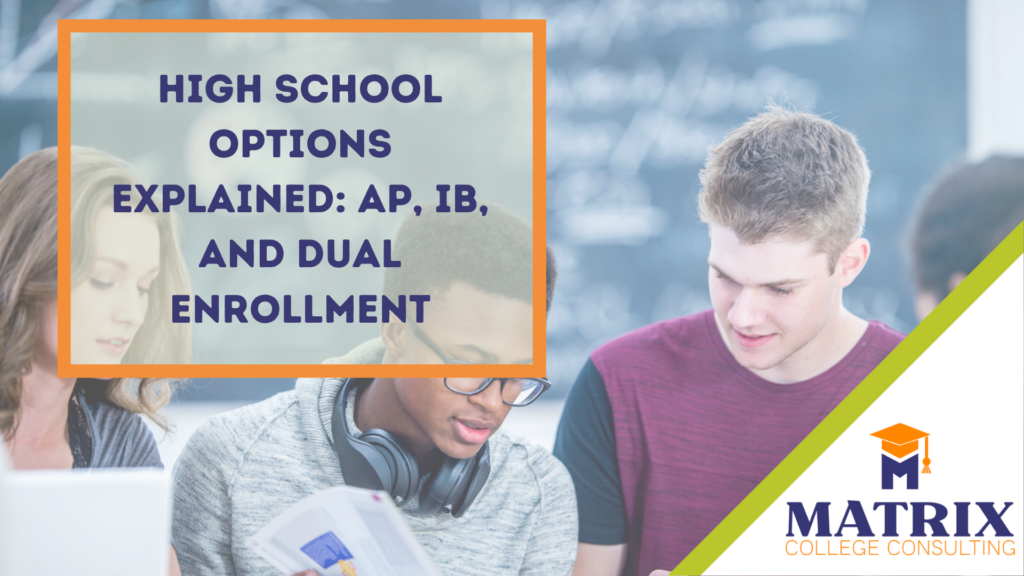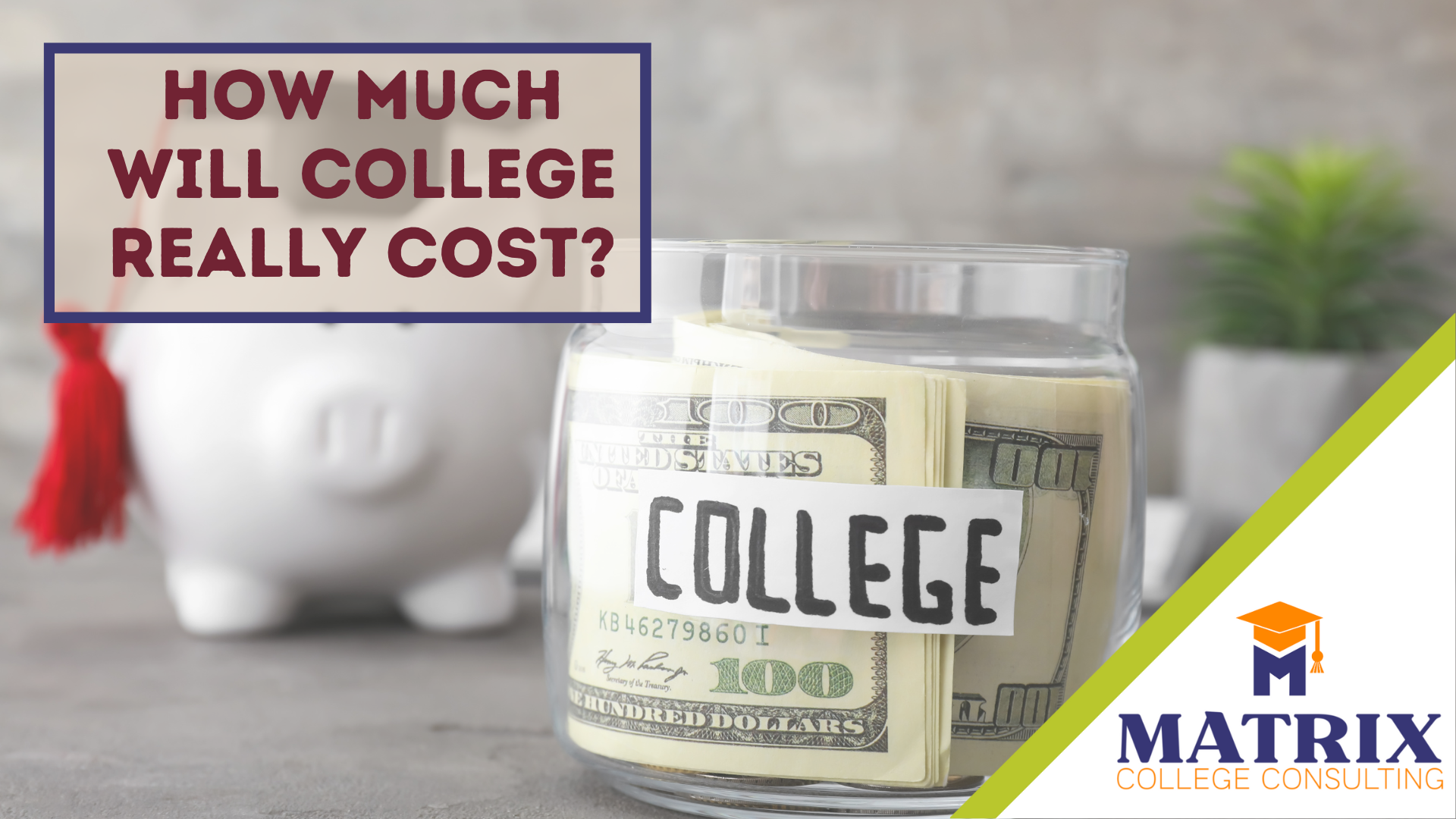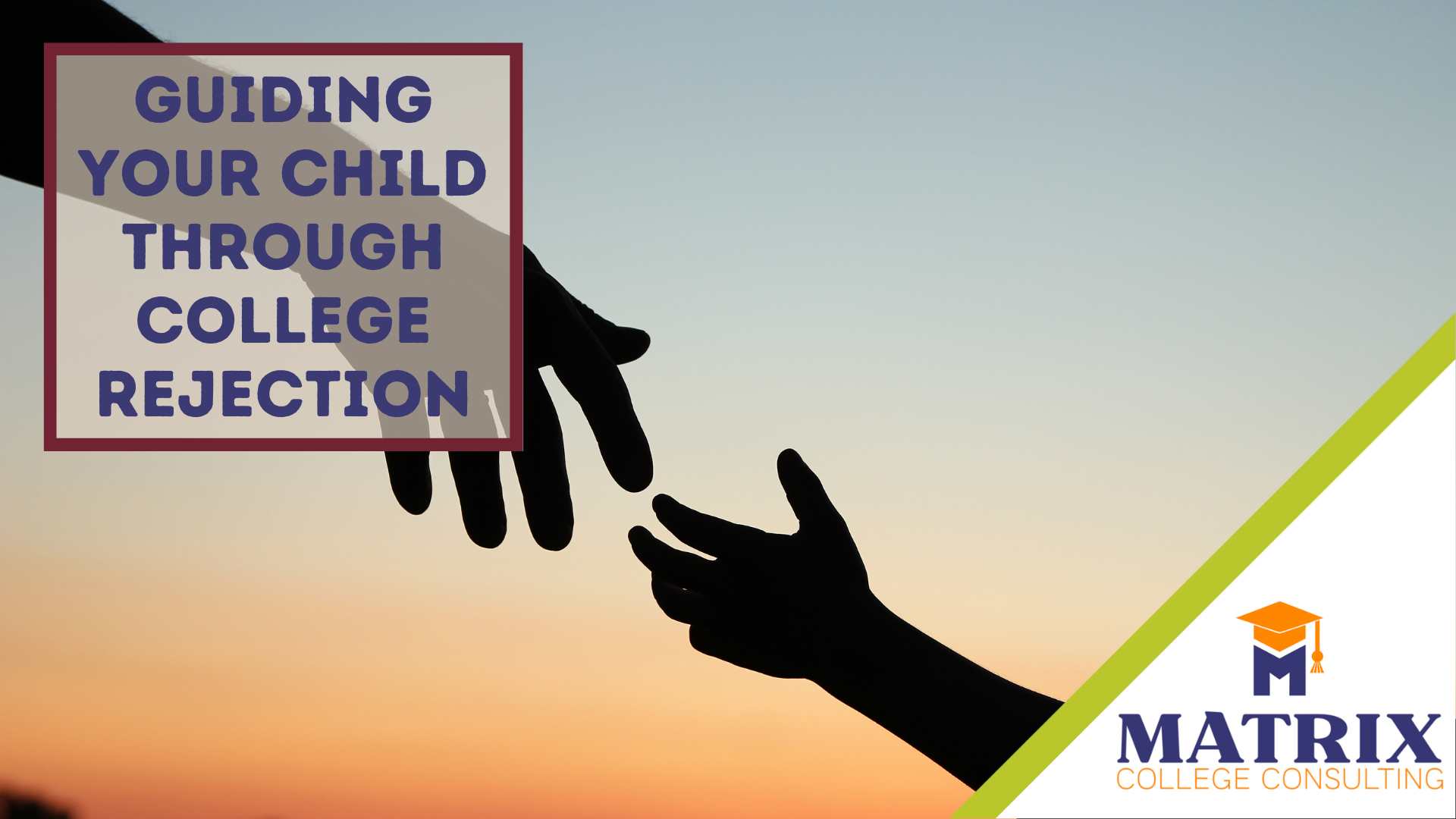Now is the time when many high school underclassmen are expected to register for next year’s courses. One question often on parent’s and student’s minds is if they should sign up for AP courses, IB courses, or college courses (or some combination thereof). In this blog post, I’ll break down what these are and who may benefit from taking them.
AP Courses:
There may be as many as 38 AP (Advanced Placement) courses offered at your high school. What are they? According to CollegeBoard.org, “The Advanced Placement Program® (AP) enables willing and academically prepared students to pursue college-level studies while still in high school. The program consists of college-level courses developed by the AP Program that high schools can choose to offer, and corresponding exams that are administered once a year.”
Your child can register for AP classes in high school. By looking at your district’s course handbook, you can determine if there are prerequisite courses, or if they can only take the course in certain grades (and sometimes there are exceptions).
AP courses are known for their rigor, as they are based on college-level curriculum. Some AP courses have a reputation for being extremely rigorous, while others are known for easier AP credit.
Who should register for AP courses? Students who are academically ready, willing to put in more work than a typical high school course, and have a genuine interest in the subject matter (not just a genuine interest in the AP grade boost!). One of the upsides of taking an AP course is that, if your child does well on the AP exam (administered in May), they will potentially earn college credit for that course. They will also get the experience of college-level expectations, and they will learn a great deal about the content and how to develop their thinking, writing and comprehension skills.
IB Courses:
Here is the mission of the IB (International Baccalaureate) Program, according to ibo.org: “The IB develops inquiring, knowledgeable and caring young people who help to create a better and more peaceful world through education that builds intercultural understanding and respect.” It’s a program known for exploring content through an international framework, in which the curriculum has both depth and breadth.
If your high school offers IB courses, students can typically take the courses individually, or as part of an IB diploma programme (DP) that starts junior year. The DP has six academic subject areas with course choices, and culminates with a theory of knowledge course, an extended research essay, and a project related to service, activity, and creativity.
Who should consider IB courses and/or diploma? According to their website, students interested in taking IB courses should be thinkers, communicators, inquiring, principled, open-minded, risk-takers, caring, and reflective. It should also be known that the diploma programme runs the entirety of junior and senior year, with rigor throughout. IB courses will help students develop skills they will need to thrive in the college setting (resilience, self-motivation, critical thinking), and colleges generally look favorably at students with an IB course or diploma background. Additionally, some universities have IB recognition policies and will give college credit based on IB test scores.
College Credit Plus/Dual Enrollment:
Most states offer a dual enrollment program, in which high school students can earn college and high school credits at the same time by taking courses at a state university or college. Check with your high school or district to see how this program works in your area. Some high schools make it easy by offering the most popular college courses right on their campus. In other schools, it’s up to an individual student to apply to a state college, get accepted into their dual enrollment program, and register for courses through the college office. (This also means that the student is responsible for getting herself to the college campus for class.)
Who should consider taking dual enrollment courses? Students who are looking for rigorous academic coursework beyond what their high school can offer might benefit from this opportunity. It gives students a chance to take an actual college class. If a student has a solid plan for his major and has already taken all of the courses the high school offers pertaining to that major, it might be worth exploring the state university’s course offerings.
Keep in mind, however, that each state has different rules, and navigating the process can be difficult. It’s typically free, which means many students apply and there can be limited availability. If your child is mature, willing to work hard, ready to interact with adult classmates, and be willing to accept responsibility for everything that goes with taking a graded college class, this is a great option to explore.
Need help in making these decisions? Let’s talk!





